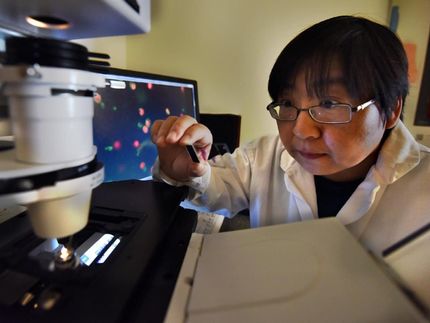A large step forward in the fight against African sleeping sickness
Each year, over 300,000 people die of African sleeping sickness (trypanosomiasis). Researchers from the Flanders Interuniversity Institute for biotechnology (VIB) connected to the Free University of Brussels are making strides in the battle against this disease. They have coupled the human protein ApoL-1 with a nanobody in order to very specifically eliminate the infection caused by the pathogenic parasites, against which our defense mechanism is powerless. Tests on mice are already promising. The recently published research results offer new possibilities for people who have contracted this disease.
African sleeping sickness is a disorder caused by the trypanosome parasite. The blood-sucking tsetse fly transmits the parasite from person to person. Once someone has been infected by the parasite, the person's body has great difficulty getting the infection under control, because the parasite constantly changes appearance. Thus, the trypanosome remains impervious to the antibodies that the body produces. Fortunately, our body has a special defense mechanism that can help us in the fight against African trypanosomes. Our blood contains ApoL-1, which is toxic to most types of trypanosomes.
However, there is one trypanosome against which we are not protected: Trypanosoma brucei rhodesiense. This parasite is resistant to ApoL-1, because it has particular proteins that counteract ApoL-1's action.
For some time now, scientists have known that a variant of ApoL-1 is not neutralized by Trypanosoma brucei rhodesiense. This truncated ApoL-1 variant can help to overcome the parasite that infects our body, but only when it is present in very high concentrations. The challenge for the researchers was to get this truncated ApoL-1 variant efficiently to the place where it is needed: onto the surface of the parasite.
Under the direction of Serge Muyldermans and Patrick De Baetselier, VIB researchers have previously produced a nanobody that targets and binds to the parasite very specifically (Stijlemans et al., 2004). Toya Nath Baral and his VIB colleagues have now succeeded in coupling this nanobody to the abbreviated ApoL-1 variant. This creates a special product that binds immediately to the parasite and thus brings the ApoL-1 variant to the place where it can carry out its neutralizing action.
All the tests performed on mice have been very promising: Trypanosome-infected mice survive after 1 treatment. The parasite is removed from the blood and all effects associated with the disease disappear. There is every indication that this substance can also counteract Trypanosoma brucei rhodesiense in humans sparing them from African sleeping sickness.
See the theme worlds for related content
Topic world Antibodies
Antibodies are specialized molecules of our immune system that can specifically recognize and neutralize pathogens or foreign substances. Antibody research in biotech and pharma has recognized this natural defense potential and is working intensively to make it therapeutically useful. From monoclonal antibodies used against cancer or autoimmune diseases to antibody-drug conjugates that specifically transport drugs to disease cells - the possibilities are enormous

Topic world Antibodies
Antibodies are specialized molecules of our immune system that can specifically recognize and neutralize pathogens or foreign substances. Antibody research in biotech and pharma has recognized this natural defense potential and is working intensively to make it therapeutically useful. From monoclonal antibodies used against cancer or autoimmune diseases to antibody-drug conjugates that specifically transport drugs to disease cells - the possibilities are enormous






















































